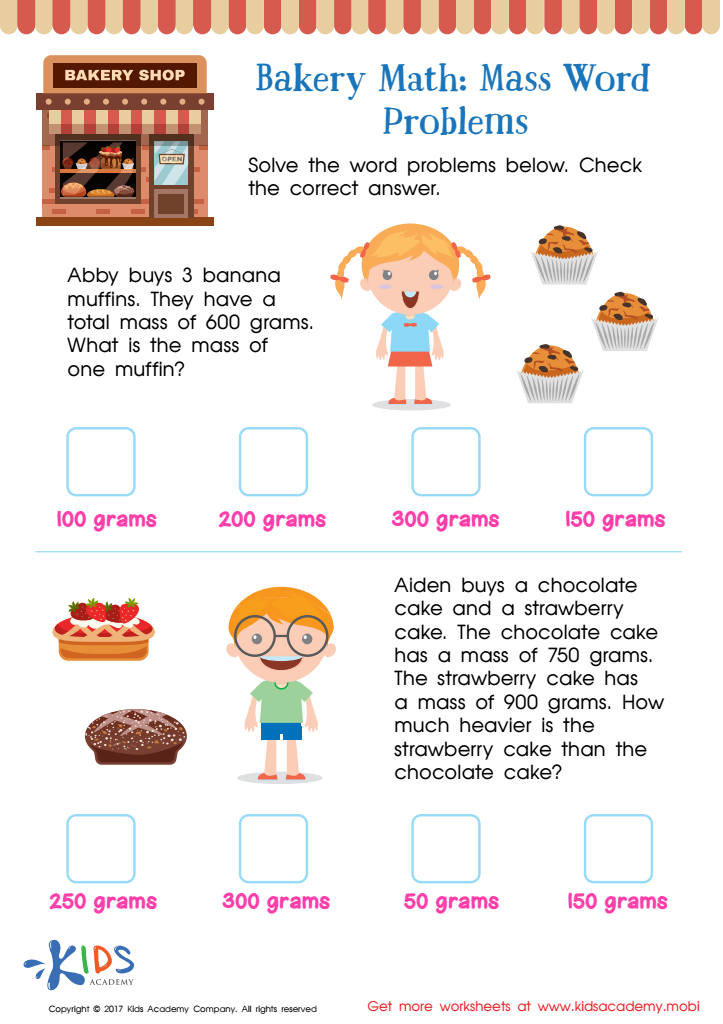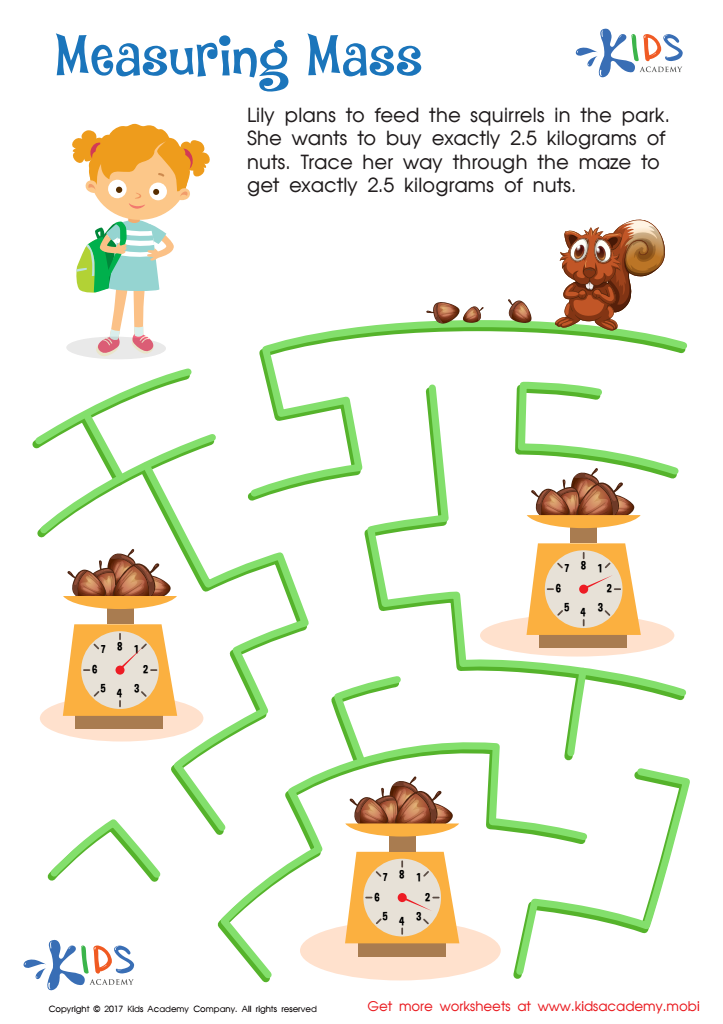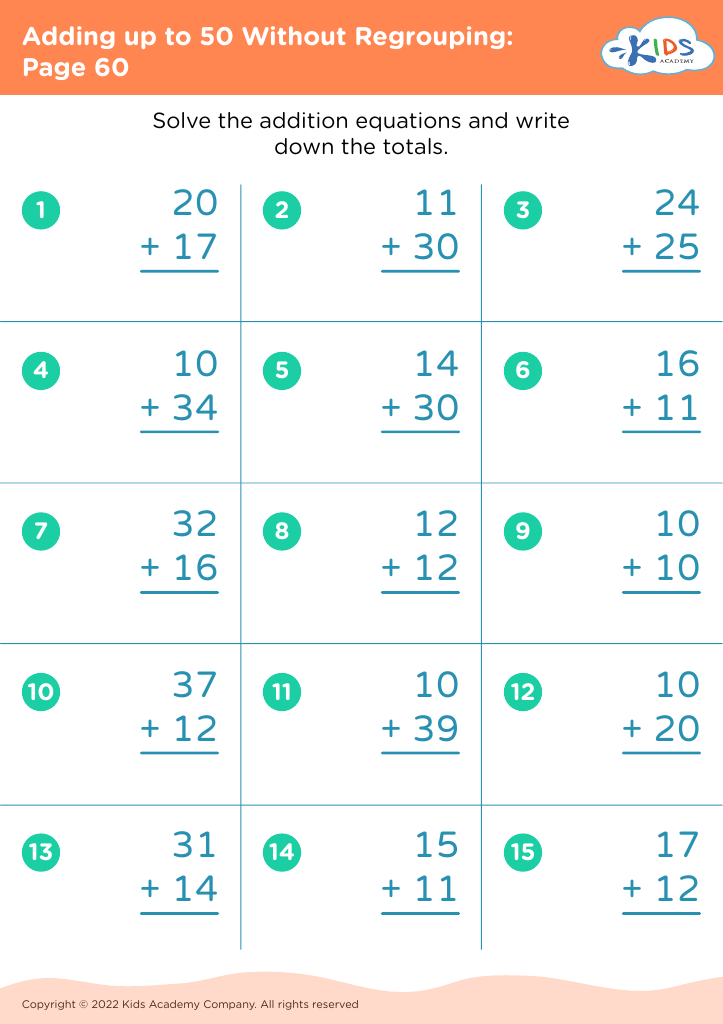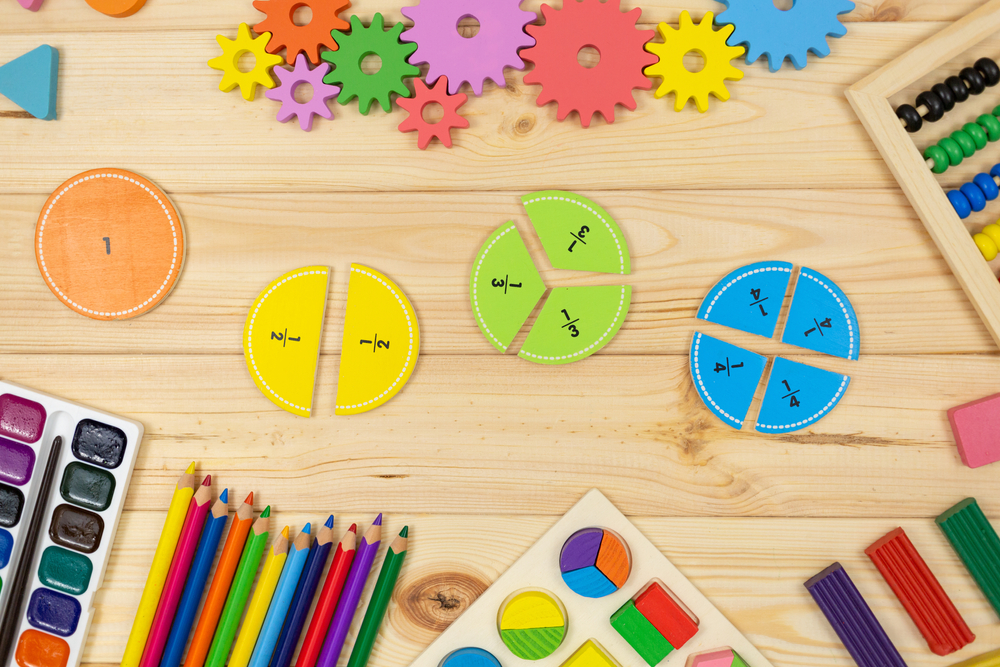Understanding mass Math Worksheets for Ages 3-9
3 filtered results
-
From - To
Explore our engaging "Understanding Mass Math Worksheets" tailored for children aged 3-9! Designed to make learning fun, these worksheets help young learners grasp the concept of mass with easy-to-follow activities. From weighing objects to comparing quantities, our resources promote hands-on experiences that enhance critical thinking and early math skills. Ideal for parents and educators, these worksheets foster curiosity and self-discovery, making complex concepts accessible to young minds. Whether at home or in the classroom, our interactive worksheets pave the way for confident learners, preparing them for future academic success. Discover the joy of learning about mass today!


Mass Word Problems Worksheet


Measuring Mass Worksheet
Understanding mass math for ages 3-9 is crucial for parents and teachers because it lays the foundation for a child's mathematical development. At this stage, children are naturally curious and eager to learn, making it an ideal time to cultivate their mathematical skills through engaging and meaningful activities. Math concepts such as counting, comparing weights, and simple operations introduce children to logical thinking and problem-solving skills that are essential throughout their educational journey.
Incorporating mass math into early education not only enhances cognitive abilities but also helps children develop a positive attitude toward math. By using everyday situations—like cooking, shopping, or playing with toys—parents and teachers can create relevant learning experiences that make math fun and applicable to real life. These interactions promote critical thinking, fostering a mindset that equips children to tackle more complex mathematical concepts in the future.
Moreover, supporting early math development can help close the educational gap. Children who have a strong grasp of foundational math concepts are more likely to excel academically and less likely to struggle with math in later years. Ultimately, investing time and effort in understanding mass math is an investment in a child's overall academic success and lifelong skills.
 Assign to My Students
Assign to My Students

















